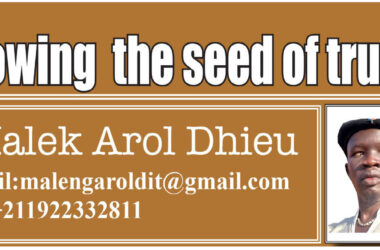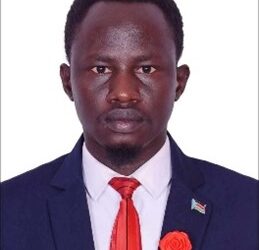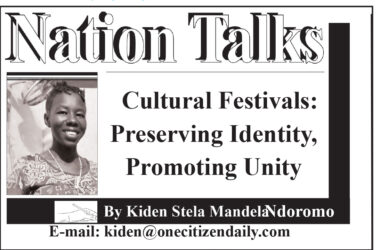By Hassan Gama Oscars
In the context of South Sudan, a nation that has endured long-standing conflicts and political instability, the significance of a robust democratic space cannot be overstated. As we approach the eagerly anticipated elections in 2024, it is imperative that we recognize and uphold the vital importance of allowing political parties to freely interact and exercise their freedom of speech and press. The democratic space serves as a foundation for fostering a healthy political environment, empowering citizens, and shaping a society that reflects the will and aspirations of its people. In this article, we will explore the key reasons why an open and inclusive democratic space is crucial for South Sudan’s progress and the successful conduct of the upcoming elections.
Nurturing Inclusive Dialogue: Democratic spaces provide a platform for political parties to engage in constructive and inclusive dialogue. Through open discussions and debates, ideas and policies are refined, and the best solutions for the country’s challenges are formulated. By encouraging diverse perspectives, a vibrant democratic space fosters a sense of belonging and ownership among citizens, making them active participants in shaping the nation’s future.
Safeguarding Freedom of Expression: Freedom of speech and press are fundamental human rights that enables individuals to express their opinions, hold those in power accountable, and ensure transparency in governance. Political parties, as representatives of citizens’ interests, must be able to freely voice their concerns, criticize government policies, and propose alternatives without fear of reprisal. A democratic space allows for the free flow of information, facilitating an informed electorate and enabling the development of a robust political discourse.
Fostering Trust and Legitimacy: A transparent and inclusive democratic space enhances trust in the political process. When political parties are allowed to freely interact, citizens witness the principles of fairness, openness, and accountability in action. The credibility of elections and the legitimacy of elected officials are bolstered when parties are given equal opportunities to campaign, mobilize supporters, and present their visions to the public. This fosters confidence in the electoral system and ensures that the will of the people is respected.
Encouraging Peaceful Competition: A healthy democratic space encourages political parties to compete peacefully for power through electoral processes. It provides a nonviolent avenue for resolving differences and allows citizens to participate in selecting their representatives. By giving parties the freedom to articulate their ideologies, engage in issue-based campaigns, and propose policies, the democratic space helps build a culture of peaceful political contestation, minimizing the likelihood of violence or instability.
Ensuring Accountable Governance: An effective democratic space establishes a framework for holding elected officials accountable. Political parties play a crucial role in monitoring government performance, advocating for policy changes, and representing the interests of marginalized groups. By enabling them to operate freely, a democratic space acts as a check on power, preventing abuses and corruption, and promoting good governance practices that prioritize the needs of the people.
Conclusion: The democratic space in South Sudan is indispensable for the progress and development of the nation. As we approach the crucial elections in 2024, it is vital to recognize the importance of empowering political parties to freely interact, exercise their freedom of speech and press, and shape the society. By nurturing inclusive dialogue, safeguarding freedom of expression, fostering trust and legitimacy, encouraging peaceful competition, and ensuring accountable governance, a robust democratic space will pave the way for a brighter future for South Sudan. Let us embrace this democratic spirit and work collectively to build a society that upholds the values of democracy, justice, and equality.




